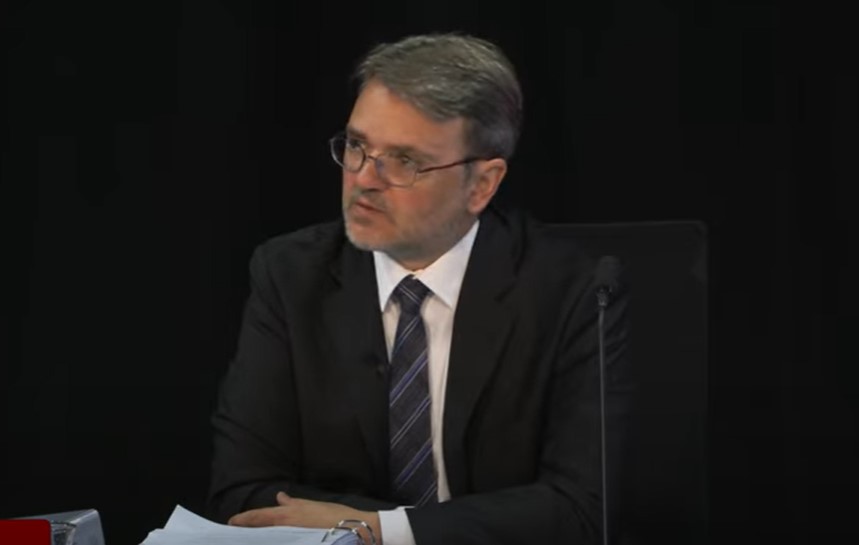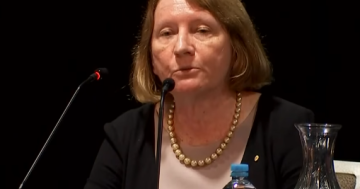
Tim Ffrench at the Robodebt Royal Commission: the legality of the scheme was not a priority. Photo: Screenshot.
A culture of fear reeked through the Department of Social Services from the very top, barring from the outset anyone opposing Robodebt.
Former chief counsel at DHS Tim Ffrench named names while giving evidence to the Royal Commission into the Robodebt Scheme this week, painting a picture of bullying and intimidation from the department’s leadership.
The deputy secretary responsible for Robodebt, the late Malisa Golightly, was the first one named by Mr Ffrench.
But when asked if there were others who imposed such a culture in the department, Mr Ffrench pointed to Kathryn Campbell at the very top.
“To the extent that Ms Golightly’s behaviour was enabled and fostered by another, it would be the secretary,” he said.
“Obviously, there were many more executives in DHS at the time who have shared that kind of approach – a command-and-control approach – to the management of the department.
“But the ones that immediately come to mind are the people I’ve just described to you.”
Mr Ffrench said any questions about Robodebt’s problems were always shut down from above.
Even queries about the program’s legal viability were not well-received.
When explicitly asked about legal issues, Mr Ffrench said the leadership culture at DHS at the time was such that the legality of the scheme was not a priority.
“Given that I think many people were determined to achieve a particular outcome for government, once they’ve reached that state of mind, I think that the inquiry, the honest inquiry into issues like the ones you were raising, was not something that was fostered by that culture …” he said.
“I believe that the culture and environment at that time prevented people from asking the questions that they should have asked because of fear that those questions would be seen as potentially impertinent, unnecessary, or that the people asking those questions may have been presented as being blockers to the achievement of particular objectives.”
The evidence matches that of another lawyer from the department, former principal legal officer Anna Fredericks, who told the inquiry in January that she was uncomfortable in 2018 with the department’s culture under Ms Campbell’s leadership.
“Colloquially, there was a commentary no one wanted to give her bad news,” Ms Fredericks said.
“You were responsible for what you were responsible for; you stayed within those bounds,” she said.
But in her even earlier appearance before the royal commission, Ms Campbell blamed the Department of Social Services for not being across the legal aspects of the scheme.
“We had left that to the Department of Social Services with responsibility for the legislation,” Ms Campbell said in November.
“I had not subsequently seen the details that were finally agreed by the government in the lead-up to the budget.”
Robodebt was an automated debt assessment and recovery program employed by DHS and its successor, Services Australia, for Centrelink compliance.
It began in 2016 and became hugely controversial due to its incorrect calculations and threat to issue illegal notices causing untold physical and mental health issues among notice recipients.
It became the subject of numerous inquiries, leading to the Coalition government scrapping the scheme in 2020 and promising to repay 470,000 wrongly collected debts.
In 2021, Federal Court Justice Bernard Murphy ruled the scheme unlawful.
Following Labor’s election victory this year, Prime Minister Anthony Albanese established the royal commission into the matter.
The hearing continues.



















